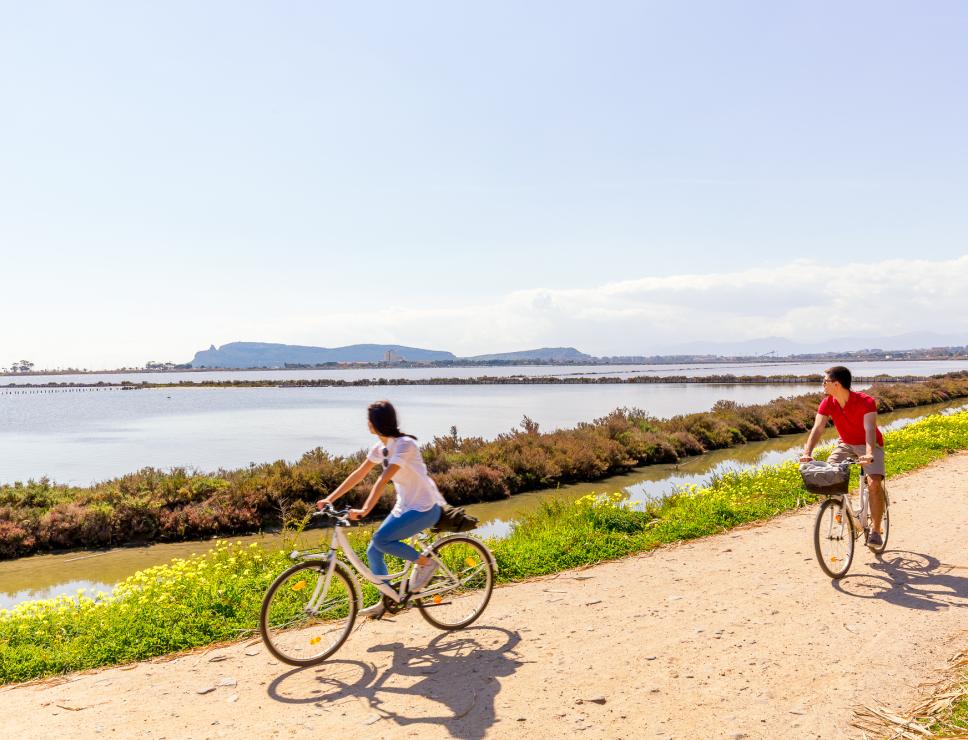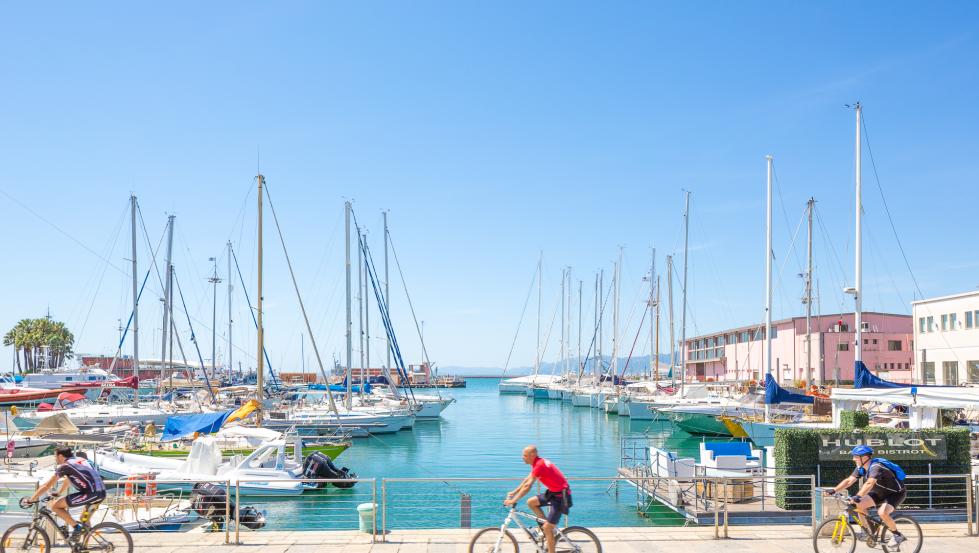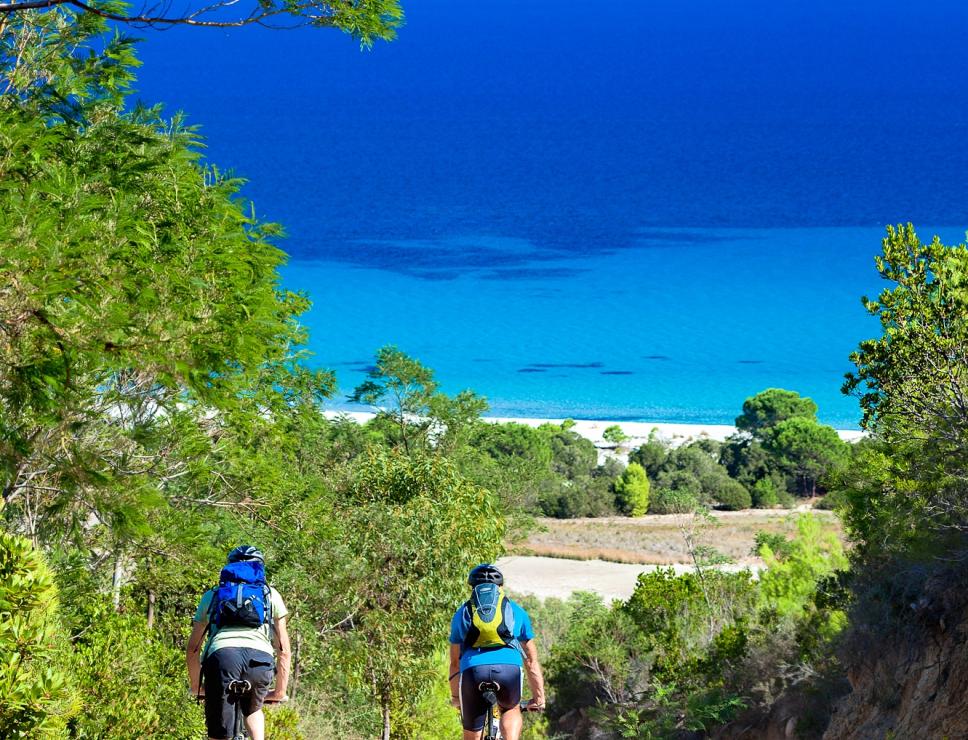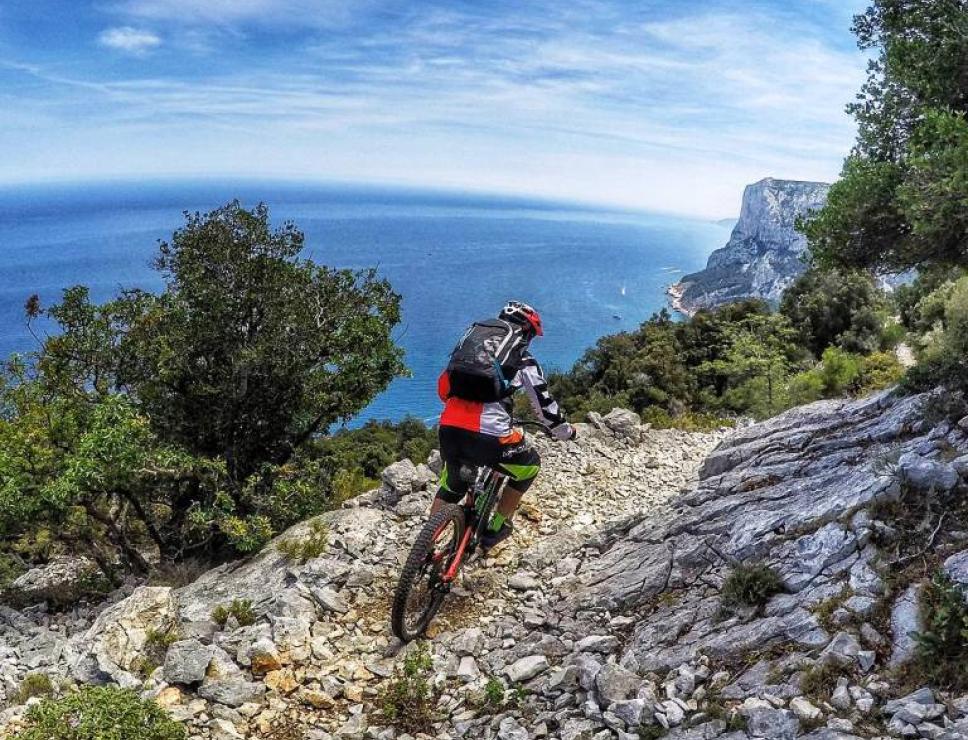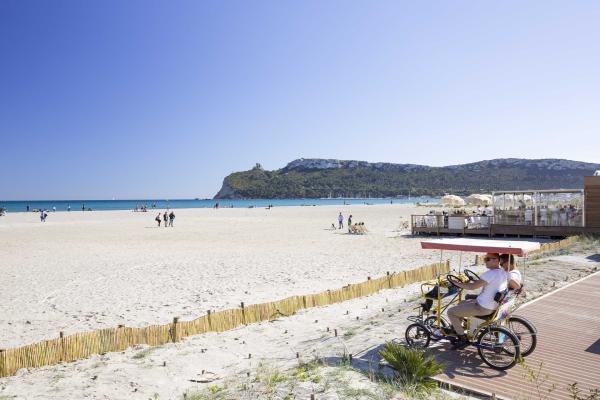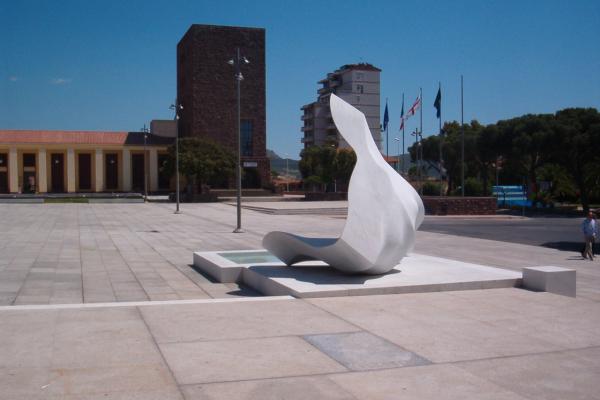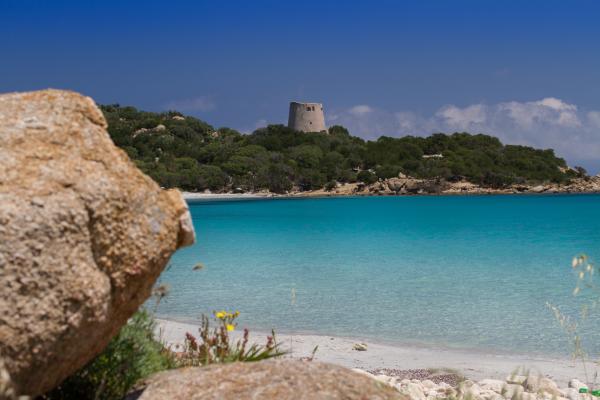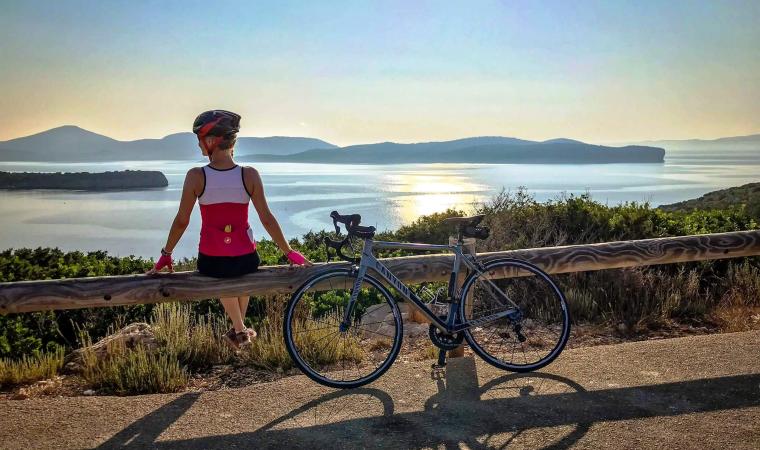
It is by riding a bicycle that you learn the contours of a country best". Ernest Hemingway loved travelling on two wheels, the sense of freedom, the rhythmic pace, exploring new lands. He would probably have enjoyed cycling through Sardinia amidst enchanting scenery, comforted by a mild climate, away from traffic, on safe, sometimes deserted roads, in close contact with the local area and its communities. Cycling is the means and common thread for discovering an authentic, ancient and sometimes unspoilt land.
A south-eastern route starts from Cagliari. Following cycle paths, you can visit a fascinating city where civilisations and cultures have intertwined throughout its history. Some landmarks include the Tuvixeddu necropolis, the Roman amphitheatre, the basilica of San Saturnino, the Pisan and Spanish fortifications and the royal palace. From the historic quarters, head towards the Molentargius-Saline park and the Poetto seafront. From Margine Rosso, continue on Provincial Road 17, a spectacular coastal road. Ride along the coast of Quartu sant Elena: the road winds its way down to the sea where you will be enraptured by Mari Pintau. Then Geremeas, Torre delle Stelle, in the area of Maracalagonis, and Solanas, a coastal hamlet of Sinnai. After thirty kilometres you will arrive in Villasimius from Porto Sa Ruxi, one of the many wonders of the Capo Carbonara marine area, which boasts such paradises as Porto Giunco and Punta Molentis.
A scenic coastal route or the 'old' charming state road 125. You have two alternatives to get to Sarrabus, the land of citrus fruits. If you have travelled the coast from Cagliari to Villasimius, the first option is the winding provincial road 18, which will take you as far as Castiadas. You will be enchanted by beaches such as Cala Pira, Cala Sinzias and the ten kilometres of sandy expanse of Costa Rei. After Capo Ferrato, you will pass the 'bronze' beaches of Feraxi and Colostrai and the Sarrabus ponds close to the coast. The alternative, 'inland' route starts directly from Cagliari via the former 125: venturing this way is like going on a journey back in time. Bends and undulations run through the Sette Fratelli park, between thousand-metre peaks and forests, a paradise for mountain bikers. From San Priamo, the coastal road leaves for Muravera and then on to Villaputzu, where you can enjoy beaches such as Porto Corallo and Cala Murtas. From here, cross the flat Salto di Quirra, facing the Tacchi d'Ogliastra.
After travelling along a long straight road, the first village in the Ogliastra region you will come across is Tertenia. This is followed by the marinas of Gairo sant'Elena, with Coccorocci and su Sirboni, Cardedu and Bari Sardo. You’ll arrive in Tortolì alongside the beautiful Cea and Lido di Orrì: they are worth a stop, then off to one of the most beautiful areas of the east coast. Head towards Baunei, where the limestone spurs of the Gennargentu overlook the sea of the Gulf of Orosei. If you wish, you can take a detour to the seaside village of Santa Maria Navarrese. On the 125, the 'main road', you’ll have to tackle the most demanding stretch: the climb up to the Genna Silana pass, over a thousand metres high. Then the well-deserved descent, 25 kilometres of winding roads to Dorgali, perched almost 500 metres above sea level but only eight kilometres from the sea. Before reaching the village, you can visit the renowned hamlet of Cala Gonone. In Dorgali, you'll linger amidst archaeology and nature: the nuragic villages of Serra Orrios and Tiscali, the Giants' tomb of s'Ena 'e Thomes, the caves of Bue marino and Ispinigoli.
From Dorgali, you can head into the heart of Sardinia, exploring the rugged slopes of Supramonte, featuring canyons, rocky peaks, caves and natural monuments such as the su Sercone chasm and the su Gologone spring. The itinerary passes through Oliena, dominated by Monte Corrasi, to arrive in Nuoro, then Mamoiada, the centre of Mamuthones and Issohadores, and Orgosolo, the village of murals.
If you continue on the 125, however, you will head towards the Baronie. First stop is Orosei, where you can visit the marina, Cala Osalla, Cala Liberotto and the Bidderosa oasis, amidst stretches of fine sand, a coastal forest and lagoons formed by the mouth of the Cedrino River. Around Mount Tuttavista is Galtellì, a village that has become a pilgrimage destination. Further north along the picturesque coastline you will encounter the beauty of Siniscola, from Capo Comino to La Caletta to Bèrchida, white sand dunes, Mediterranean maquis and a nearby pond.
From the hamlet of San Giovanni, along provincial road 24, you come to Posada, a medieval village perched on a hill and topped by the Fava castle. Not far away, an outing to the oasis of Tepilora, a UNESCO site, is a must, and is ideal for lovers of hiking, mountain biking and kayaking.
Another detour to discover the Baronie. Head for Lula, between hills and the Montalbo relief. By mountain bike you can visit limestone caves, pinnettos (ancient shepherds' shelters), prehistoric traces and mining archaeology, such as sos Enattos. From Lula, an easy stretch leads to Bitti, famous for the Romanzesu nuragic site and the Museum of Canto a Tenore, a site of UNESCO intangible heritage. Back on the coastal ridge, about ten kilometres lie between Posada and Budoni, the beautiful 'gateway' to Gallura. Another 13 kilometres of State Road 125 take you to San Teodoro and its attractions, from l'Isuledda to La Cinta, from Puntaldìa to the lagoon, from Lu Impostu to Cala Brandinchi. The ride continues with a view of the Capo Coda Cavallo marine area: the imposing limestone mountain of Tavolara emerges from the sea and forms the backdrop to your arrival in Olbia.


